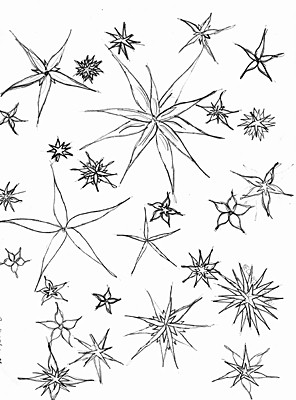All Nonfiction
- Bullying
- Books
- Academic
- Author Interviews
- Celebrity interviews
- College Articles
- College Essays
- Educator of the Year
- Heroes
- Interviews
- Memoir
- Personal Experience
- Sports
- Travel & Culture
All Opinions
- Bullying
- Current Events / Politics
- Discrimination
- Drugs / Alcohol / Smoking
- Entertainment / Celebrities
- Environment
- Love / Relationships
- Movies / Music / TV
- Pop Culture / Trends
- School / College
- Social Issues / Civics
- Spirituality / Religion
- Sports / Hobbies
All Hot Topics
- Bullying
- Community Service
- Environment
- Health
- Letters to the Editor
- Pride & Prejudice
- What Matters
- Back
Summer Guide
- Program Links
- Program Reviews
- Back
College Guide
- College Links
- College Reviews
- College Essays
- College Articles
- Back
Literary Analysis
The journey of strength and growth only come about through constant struggle and effort. Starfish by Akemi Dawn Bowman tells the story of Kiko Himura, a girl who can relate with many and inspire others. Kiko has many issues at home, but she tries her hardest to pursue her dreams, even though she had a hard time saying exactly what she’s thinking. This beautifully written story conveys the idea of family and identity, both of which Kiko learns to break free from. The author accurately portrays the development of Kiko’s character in a way that benefits her relationships because the end result of these relations are better than how they first began.
Even though Kiko and her mother never stood on very great terms, Kiko eventually stood up to her because she got tired of the way her own mother treated her. This further explains that over time, Kiko has learned to be more confident and so this made her relationship with her mother grow in a positive way, even though it’s not completely perfect. “She actually wants to get better. I can’t believe it. She listened to me. Mom nods ‘Yeah I think I need to.’ Something in my stomach spins and I feel light-headed. She took me seriously. She’s admitting she needs help.” (Bowman, 328) For once, Kiko’s mom finally listened to her and didn’t act like her usual self, which implies that there has been some change somewhere in the story. Therefore, thisclearly proves that their relationship has definitely blossomed, slow yet satisfying like a flower.
Symbolically, Jamie was like Kiko’s sunshine, being there for her every conundrum. He stood by her side for her to rant or just pour her feelings out, whichhelped Kiko grow emotionally and mentally. By doing so, Kiko learns not to bottle up all her feelings and to let them out before things got too chaotic. “Jamie makes me feel safe, and right now I need him more than ever. A month ago, I’d never dreamed of driving across the country trying to look at colleges without even being invited. I don’t have the courage to step outside my own element. And my element, quite obviously, is being alone and invisible. I tell myself I need to thank him…” (Bowman, 174) Jamie was like the peanut butter to Kiko’s jelly. She needed him in order to flourish, because without him, Kiko would’ve never built the courage to speak up for herself or even do anything out of her comfort zone towards the end of the book.
Akemi Dawn Bowman implies that Kiko has a great passion in art, so basically it was like her safe place when she needed to escape. This points out that painting and drawing let her get away from all her problems or release them onto paper and canvas. Without it, Kiko couldn’t have been able to find her self worth and truly believe in something she loves. “‘Kiko, I think other people can see you more clearly than you can see yourself. As an artist, you have to know what’s inside of you if you want to get it out on canvas. It hurts me to think as someone as talented as you is holding themselves back without even realizing it.’” (Bowman, 200-201). “Maybe he sees how badly I need this- maybe he’s giving me this chance because he can see that without art, I am nothing.” (Bowman,201). Art symbolized her light at the end of a dark tunnel, she kept this as a reminder of what she’s working so hard for and to be able to get to the end, she must have courage.
The author accurately portrays the development of Kiko’s character in a way that benefits her relationships because the end result of these relations are better than how they first began. This book shows a powerful view of breaking free, finding Kiko’s voice, and understanding self worth. Growing is something we all must pursue, some just have different ways of doing so, whether it causes a person to make difficult choices or change the way things end up.

Similar Articles
JOIN THE DISCUSSION
This article has 0 comments.
